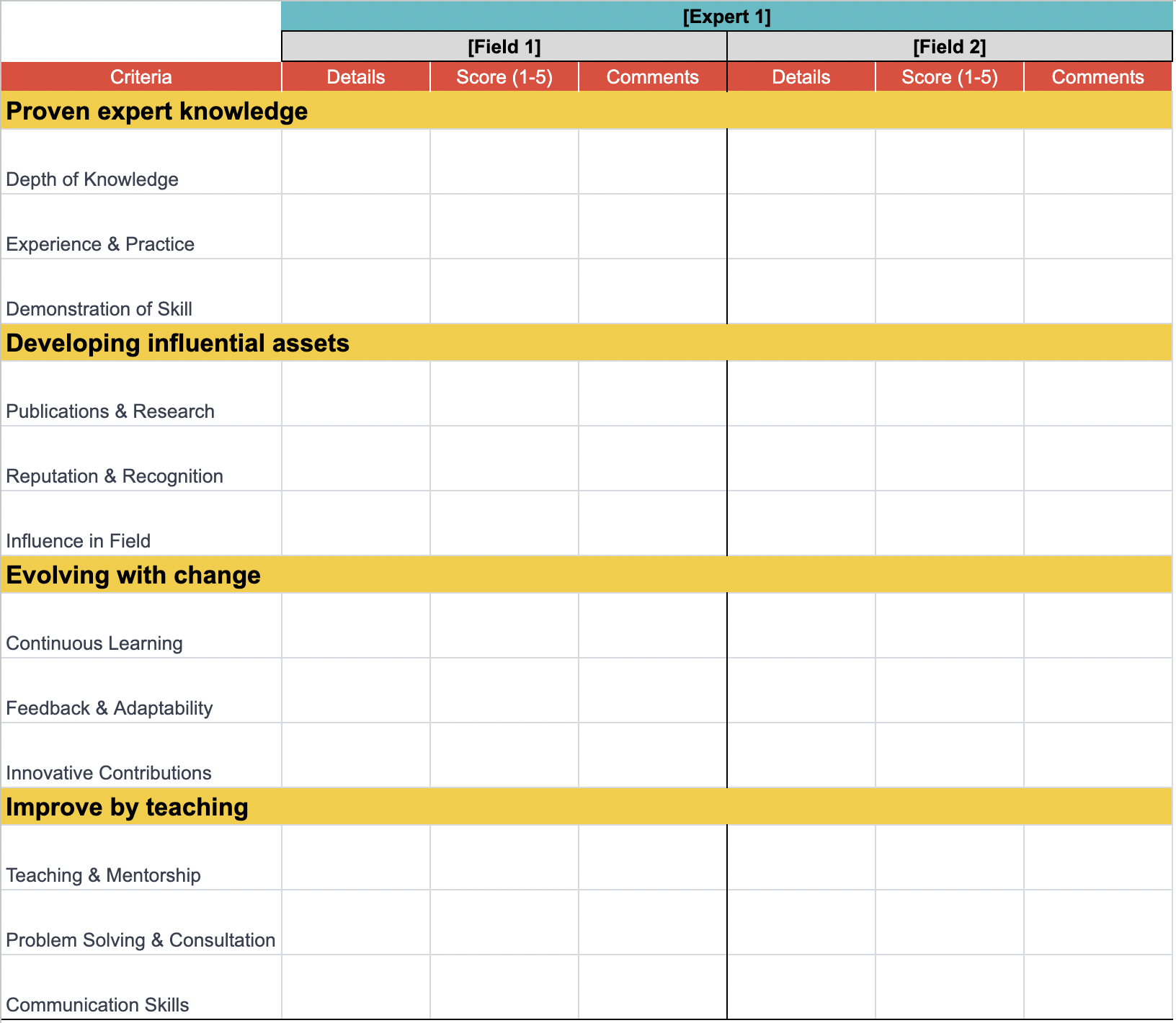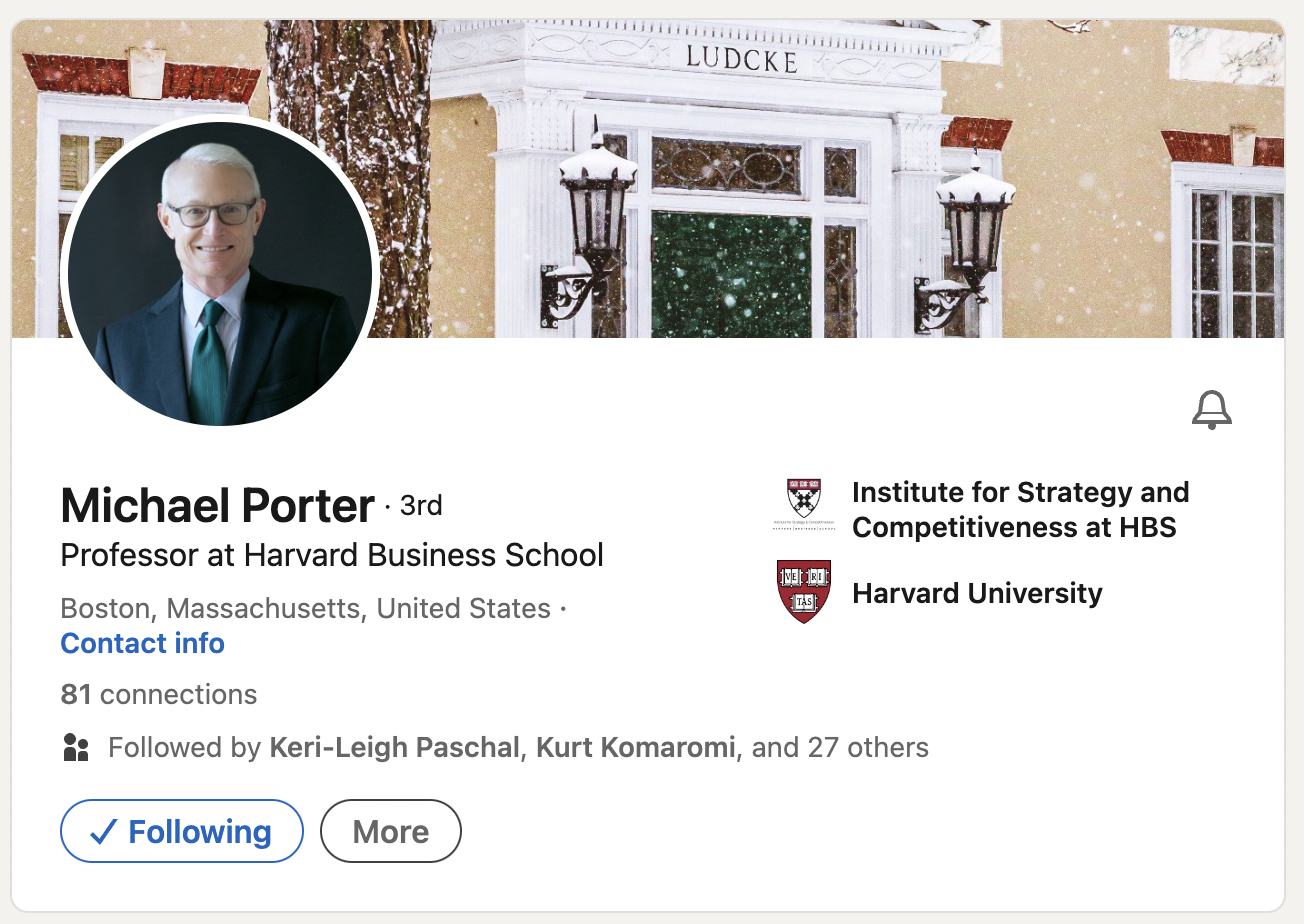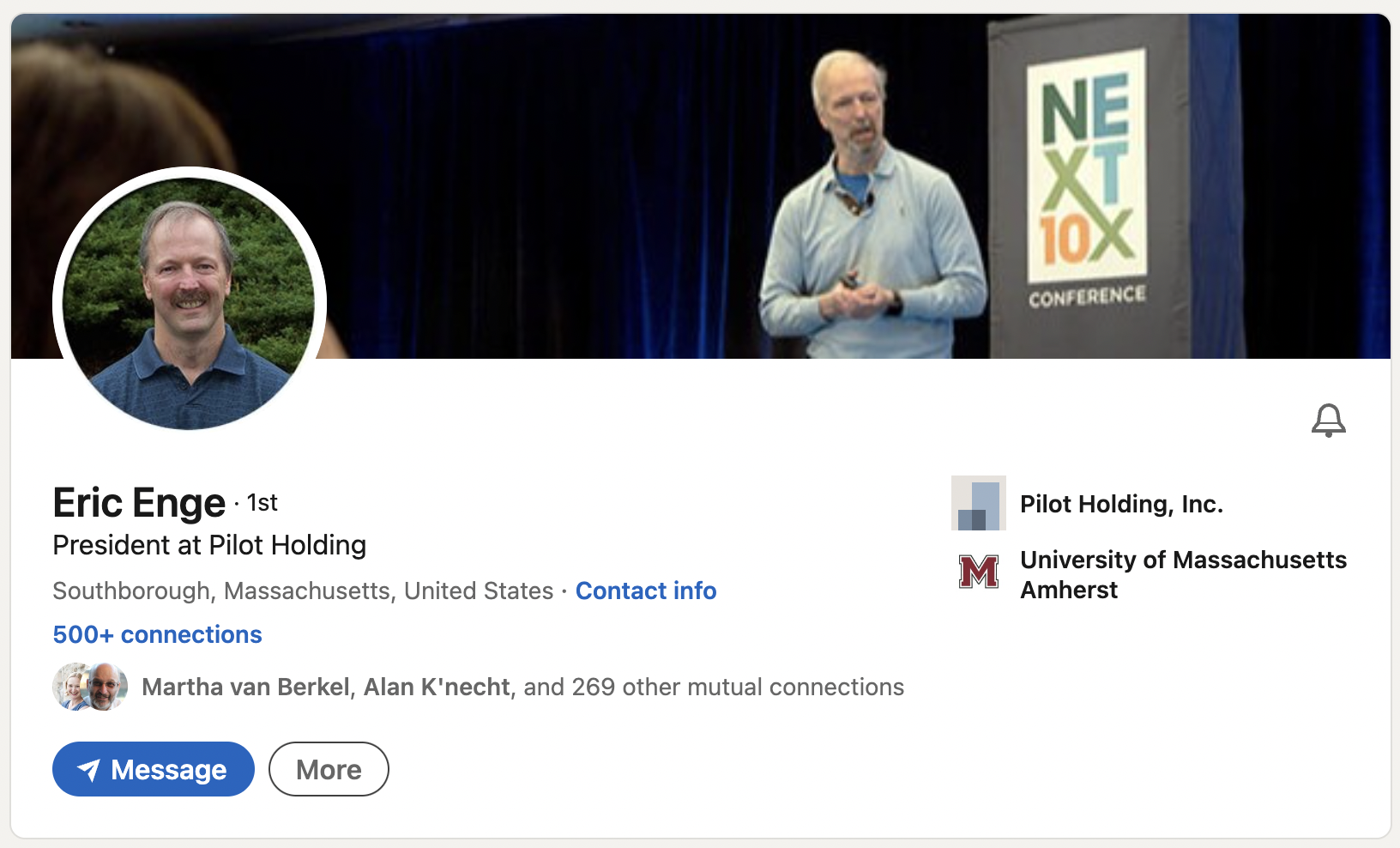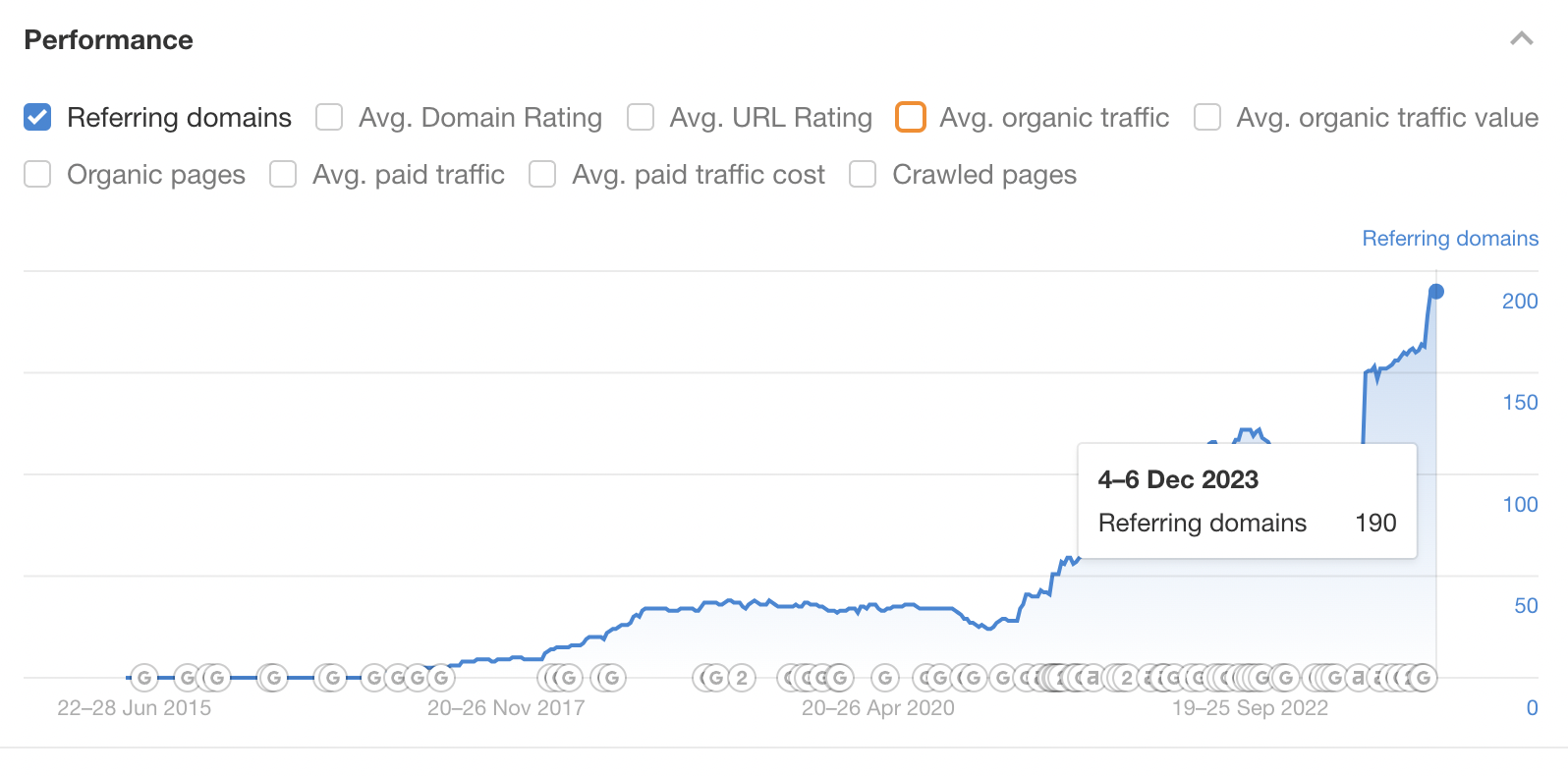A company can generate influential media exposure by turning internal expertise into media sources.
I challenge you to use brand scoring, like count, content shares, or other vanity metrics when pitching a journalist or editor to become an expert source.
The best-case scenario is that you don’t get a response. But if the media contact feels snarky that day, they would respond with a laughing emoji.
More than 50% of journalists need PR pros to provide expert sources. However, news happens fast around an event, and you must be a proven expert for journalists or editors to reach out or respond.
To become an expert source, be ready to prove your expertise fast.
Creditable experts are becoming a valuable resource, but this raises some questions:
- How do you know you or a source is an expert in their field or topic?
- How do I demonstrate my expertise and creditability?
- Is there a way to improve my creditability?
- How do I know what I’m an expert in?
When identifying an expert’s core expertise, start by identifying the experience in a specific field. In that field, examine:
- Proven expert knowledge: Depth of knowledge, real-world experience, and demonstration of skill.
- Developing influential assets: Reputation and recognition, published research, and influence in the field.
- Evolving with change: Innovative contributions, adaptability to feedback, and continuous learning.
- Improve communications by teaching: Teaching and mentorship, real-world problem solving, and communication skills.
I created this expert evaluation and planning tool to help guide this process.
This tool helps to identify, improve, and prove a subject matter expert’s (SME) or company’s experience and expertise in a given field. It’s not an attempt to reverse engineer or deconstruct why pages rank in search engines but rather a human tool to judge if someone has expertise in a given field.
 Image created by author, December 2023
Image created by author, December 2023Start by selecting an expert and identifying their field of expertise. For each field of expertise, identify proof in each of these areas. Then, rate each one on a scale of one to five.
These scores don’t add up to an overall score, as you would have to weigh each criterion against the others.
The purpose of scoring is to provide a human rating scale in which a person can evaluate the levels of expertise for a given criteria.
Each criterion is explained in-depth below, with examples.
Specifying Field Of Expertise
The specific field is a niche or area within a broader field where the expert has specialized knowledge. An expert in a field has deep knowledge that gives them a clearer perspective and insights into a complex topic.
An expert can have general field knowledge or be a hyper-specialized subject matter expert (SME). The scale looks something like this:
- General knowledge.
- Some specialization.
- Notable expertise in a niche.
- Renowned in a specific niche.
- Leading authority in a specialized area.
When a field is identified and ranked, map the expert’s proven knowledge.
Proven Expert Knowledge
Malcolm Gladwell wrote a book called “Outliners: The Story of Success” and frequently mentioned the 10,000-hour rule to achieve true expertise. This means that by focusing on something for a long time, one can become a “true expert” in that skill, or any skill, by practicing.
The book “Mastery” by Robert Greene postulated that to master something truly, one needs to integrate diverse experiences and use those to drive a unique practice (I’m butchering this idea a little).
This reminds me of a training session with a blackbelt in Brazillian Jiu-Jitsu.
Expert knowledge doesn’t just pop up; it’s developed through sweat and tears. This can lead to depth of knowledge.
Depth Of Knowledge
What depth and breadth does the subject matter expert have in their field of expertise? An expert should have deep knowledge in specific areas and a broad understanding of the entire field.
Use the following scale to evaluate an expert’s depth of knowledge.
- Basic understanding in a few areas.
- Fair understanding in multiple areas.
- Solid grasp of most areas.
- Deep knowledge in several areas.
- Expertise across the entire field.
An expert who applies what they have learned gains a practical understanding that others can use.
Experience & Practice
The length of time in the field, the hands-on application, and the wide range of experience are reliable ways to understand any individual or company’s expertise.
However, I remember telling someone I had put over 10,000 hours into something, and they looked at me like I was crazy. Hours are difficult to measure, so use years instead.
The more diverse and long-term the experience in a specific field, the higher the score.
- < 1 year.
- 1-3 years.
- 4-6 years.
- 7-10 years.
- >10 years.
With years of practice from thorough learning, the next step is demonstrating those honed skills.
Demonstration Of Skills
A reputation combined with the demonstration of skills provides another filter to judge a level of expertise. These proofs are real-world examples of projects, implementations, or deep case studies.
- Few examples.
- Some basic examples.
- Several good examples.
- Wide range of examples.
- Numerous standout examples of expertise.
Developing Expert-Led Influential Assets
Developing influential assets that other experts recognize and adopt can drive influence in a field and create significant proof of expertise alone.
Michael E. Porter, a professor at Harvard Business School, specializes in strategy and competitiveness, which has led to his ideas influencing government and large corporations.
 Screenshot from LinkedIn, December 2023
Screenshot from LinkedIn, December 2023In 1996, Porter published an article called What is Strategy, where he explained that strategy is not just operational efficiency but also the creation of a unique position from a set of activities that work well together for a common purpose.
This means that being able to produce a product at a lower cost or faster than others doesn’t generate a competitive advantage alone.
I use this when examining a product’s competitive positioning or planning content strategy. This one article guides a lot of my thought process.
Not to mention the number of scholarly citations he has amassed.
This article, and much of what Porter produces, is an influential asset. These are not just articles but are well-researched and considered works.
Proter’s work embodies three aspects of what comprises an influential asset:
- Performing research and getting published.
- Gaining a reputation with recognition from other experts’ citations.
- Show influence in the field from the publisher research that other experts recognize, write about, and apply.
Publications And Research
Performing research and being quoted in reputable publications, journals, or books can indicate an in-depth understanding and contribution to the field.
As an expert in the field generates recognition for published papers that stand up to scrutiny, their reputation strengthens.
However, publishing peer-reviewed papers is time-consuming and not always a realistic investment of time – industry awards where peers review a case study or contributions to publications.
Being published in a reputable publication and having reputable experts cite your work can validate a reputation. The scale may range from:
- No research or publications.
- Few research or publications.
- Some research or publications.
- A lot of research or publications.
- Renowned author or researcher in the field.
Improve an expert’s reputation by getting more published research recognized by other experts. Then, the expert can gain influence in a field.
Pro tip: I asked my friend Adam Peruta, Associate Professor in the S.I. Newhouse School of Public Communications at Syracuse University and the director of the M.S. program in Advanced Media Management, about the importance of scholarly publications. He suggested that performing primary research and writing a book doesn’t require as much scrutiny as scholarly papers and can provide great insights to an audience.
Reputation And Recognitions
A reputation is built over time with ongoing recognition from reputable sources.
Gaining acknowledgment from peers, reputable media mentions, or experts in the field can greatly influence reputation. Testimonials from clients or internal case studies are valuable tools but don’t carry enough weight for editors and journalists.
I was on a Zoom call to interview a senior editor, and as we began talking, he looked at the bookshelf behind me and said, “Is that the ‘4-Hour Work Week by Tim Ferris’…I’m in that book.”
After a few seconds of confusion, I asked what he meant, and he clarified that he was cited as an expert by Tim Ferris, who is known for his ability to vet experts. The interviewee’s reputation for producing high-quality work was immediately clear due to Tim Ferris’s recognition.
The more recognitions by reputable sources, the higher the score. My scale is as follows:
- Rarely recognized.
- Occasionally acknowledged.
- Known by some peers.
- Frequently cited/thought leader.
- Widely recognized in and outside of the field.
With publications and recognition comes long-term influence, and not before.
Influence In The Field
When it comes to experts, influence is based on the impact and change in their field. It can be measured by other professionals’ adoption of their methods or concepts but less so by followers, citations, or mentions, which are vanity metrics.
This is in contrast to an influencer who has followers and engagement but may not have a true influence on long-term behavior.
Influence is determined by how people talk about that individual and how the expert’s knowledge impacted their process or methods to help create breakthroughs.
My simple scale is as follows:
- Minimal influence.
- Some followers or citations.
- Influences a group within the field.
- Major influence in the field.
- Transformative influence, setting trends or standards.
Evolving With Change
In the book “Mastery,” Greene explains that a master will reach a creative-active phase and find their unique methods. These methods can be breakthroughs, new methodologies, or tools they’ve introduced to the field.
John Danaher is Gordon Ryan’s Jiujitsu coach. Danaher is considered one of the greatest BJJ coaches ever, while Ryan is the most dominant BJJ athlete with a 95-5-3 (Win-Decision-Loss).
In the first 45 seconds of this video, Danaher explains that he has taught Ryan everything he knew, and Ryan has begun to create his own breakthroughs. This is the creative-active phase.
Ryan states in the video that as he learned new moves, the industry, and competition evolved to identify and counter the moves; thus, his system would be ineffective in the evolving world of BJJ.
If Ryan stuck to the known system Danaher created, he would quickly become ineffective. Instead, Ryan evolved his system and is still the most dominant athlete in BJJ.
If you want to study how to master something, study the relationship between these two men. From the book “Mastery” and this example, I find three aspects to examine in an expert:
- Continuous learning based on innovations.
- Feedback & adaptability against those innovations.
- Innovative contributions of your own based on your learnings and applications of the knowledge.
Continuous Learning
The first step in an expert’s evolution is a feedback loop from continually updating their knowledge. This shows commitment to the field, but they can’t change with the industry in a closed-loop system. The scale is very simple.
Ryan learns by testing against other top players and experimenting. This is a great feedback loop, but attending workshops and industry events to learn is another indicator.
- Rarely updates skills.
- Attends occasional courses.
- Regular self-learning.
- Frequently attends courses/workshops.
- Lifelong learner often seeks new knowledge.
Feedback & Adaptability
As you can see by Ryan’s continued dominance as the sport changes, responsiveness to feedback and the ability to adapt will keep an expert’s knowledge relevant and practical. An expert should be open to feedback and continuously refine their approach, especially in a fast-paced industry or niche.
This is uniquely relevant in the SEO industry, where search engine algorithms and practices frequently evolve.
When someone applies knowledge in real-world situations with a constant feedback loop and proves adaptability, they will produce continued results. That’s why the fifth level is active feedback:
- Rarely accepts feedback.
- Sometimes considers feedback.
- Often adapts based on feedback.
- Seeks out feedback.
- Actively integrates feedback into their approach.
Innovative Contributions
Ryan and Danaher’s continuous learning and evolution through feedback & adaptability have created breakthroughs, new methodologies, and new tools introduced to the sport. Novel contributions demonstrate high expertise.
Not all experts need to be such pioneers; making notable contributions can significantly influence how others perceive their expertise.
Again, this scale is straightforward and is based on the level of and how significant the contributions are:
- No contributions.
- Minor contributions.
- Some notable contributions.
- Several major contributions.
- Pioneering contributions in the field.
Solidify Knowledge By Teaching
Many of you reading this will know Eric Enge, founder of the SEO and digital marketing firm Stone Temple Consulting, which was later sold and merged into a global digital consultancy, Proficient.
Enge is President of Pilot Holdings, advising startups, founders, or companies as a board member or consultant on anything that can help build businesses.
 Screenshot from LinkedIn, December 2023
Screenshot from LinkedIn, December 2023Eric is extremely generous with his time. The first time I met him was at a search engine event in San Diego, I believe, about five or six years ago. I had just started my latest company, PureLinq, and was trying to talk to anyone about how they founded and built their company.
So, in my usually unusual fashion and probably with a wild look in my eyes, I asked Eric if I could talk to him about how he built Stone Temple. Like so many times before, I expected a quick answer or to be shrugged off.
However, Eric sat down with me for about thirty minutes to one hour and answered every question I threw at him. I think he was late for a meeting as a result.
I learned a lot from that interaction. First, to be very generous with my time. But also the importance of teaching and mentoring others.
No wonder when I looked at the link profile for his LinkedIn page in Ahrefs, it had almost 190 referring domains linked to it. Teaching others is a way to solidify your knowledge and build a strong network of peers.
 Screenshot from Ahrefs, December 2023
Screenshot from Ahrefs, December 2023Eric has also shown me the importance of the following three factors in proving expertise:
- Teaching and mentoring.
- Problem-solving and consultation.
- Communications skills.
Teaching And Mentoring
Experts who teach or mentor are often deeply knowledgeable in their subject. If an expert offers their knowledge to others and they are not well received, then it can demonstrate that the expert’s knowledge isn’t valued.
Additionally, teaching others can help an expert examine their expertise in relation to other experts. This is a great feedback loop.
A teacher doesn’t necessarily have to design the course material, but a renowned teacher will have a great understanding of the material and be able to make it clear and easy to apply to the real world.
Eric is known for teaching classes on technical SEO based on his real-world applications and case studies. Here’s an example of Eric’s analytical style of presentation using real-world data.
Eric regularly teaches and mentors people so influencers and experts are comfortable sharing his work. However, I might not categorize him as a renowned teacher as he doesn’t teach at Stamford or other elite universities. Sorry, Eric!
Michael Porter is considered a renowned expert, as nations consult with him and are influenced by his research. The teaching and mentoring scale is as follows:
- Rarely/never teaches.
- Occasionally mentors.
- Teaches a few courses.
- Regularly teaches or mentors.
- Renowned teacher or mentor in the field.
Teaching others and allowing the students to answer questions can demonstrate or improve problem-solving.
Problem-solving And Consultation
Experts should offer actionable solutions to real-world issues.
When faced with a real problem in the field, an expert can troubleshoot. On the low end of the scale, an expert might be unable to solve problems and tend to write a lot about them.
You may see this in certain influencers who write a lot but don’t have any long-term clients or products that people buy.
An expert who is regularly consulted and professionals who continue returning to them for advice tend to have proven their usefulness to others.
The level of complexity is open to interpretation based on the field’s niche. Here is the scale I follow here:
- Struggles with real-world problems.
- Can solve basic problems.
- Regularly consulted for advice.
- Known for innovative solutions.
- Go-to expert for complex problems.
Communications Skills
Experts should be able to convey complex information understandably to communicate their knowledge effectively to different audiences. Journalists will, of course, want this attribute. This also indicates that they know the subject matter well.
I recently bought the book “How to Read a Book” by Mortimer Adler and Charles Van Doren. It highlighted that a practical book, or any how-to content, should be evaluated by how actionable the content is in the real world to accomplish a specific goal in a very specific scenario.
This can only be evaluated by applying the information to solve a problem.
I think about communication in the business world as how the content creates a particular outcome with clear steps and actions. So, this scale is based on communicating helpful information in a way that applies to a specific situation:
- Struggles to explain concepts.
- Can convey basic ideas.
- Communicates clearly to peers.
- Can break down complex ideas.
- Excellent communicator at all levels.
Start Uncovering And Developing Your Expertise
To become an expert source for journalists and editors, it is crucial to understand and communicate one’s expertise in their field. The expert evaluation tool helps in identifying and enhancing these attributes.
Becoming a recognized expert involves more than just knowledge, as we see in some influencers who teach but don’t execute; it requires proven expert knowledge, developing influential assets, evolving with change, and improving and proven communications by teaching.
With the evolving media landscape, there’s a growing need for credible experts. Proper assessment and development of expertise can position individuals and organizations as expert media resources.
Achieving media recognition as an expert involves genuine contributions to one’s field with continuous improvement, not just chasing superficial metrics like reach or likes.
More resources:
- The Top 5 Link Building Strategies (With Examples)
- 7 Link Building Tips For Beginners
- Link Building for SEO: A Complete Guide
Featured Image: Pixel-Shot/Shutterstock





